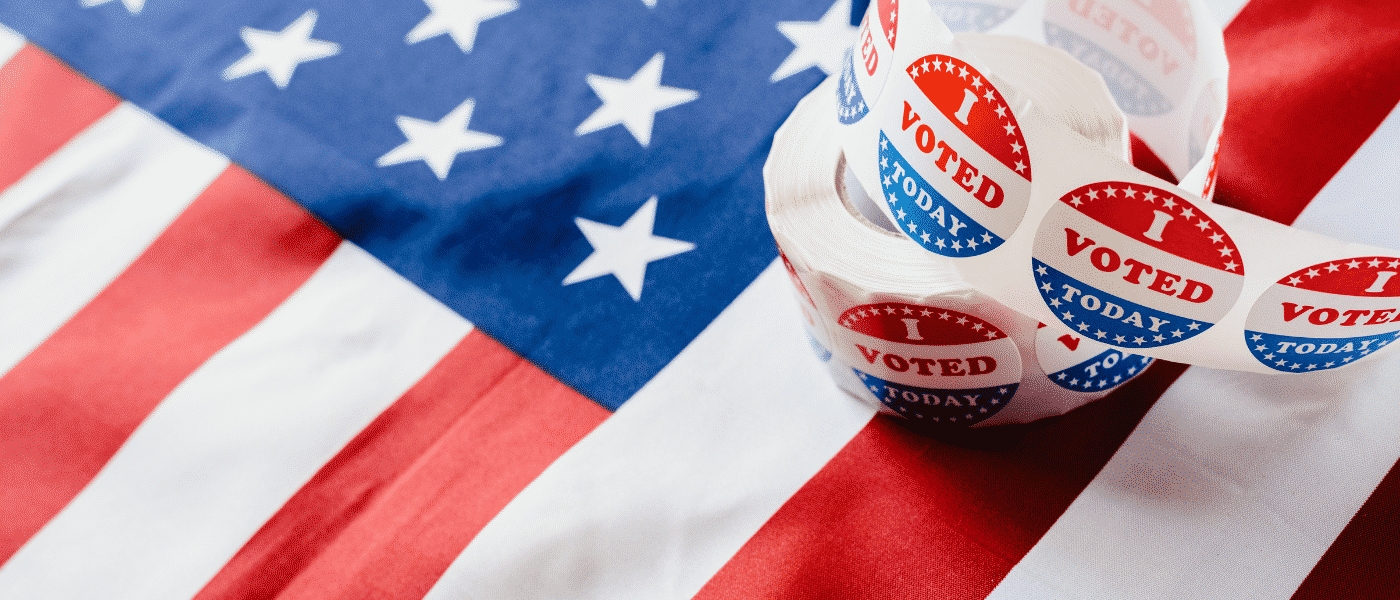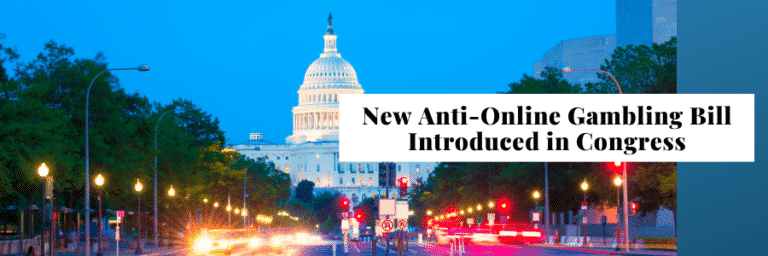Election Recap: Gambling Measures On Election Day Go 6 For 6

The 2020 Presidential Election is a nail-biter, but gaming measures from casinos to sports betting were on the ballot and breezed to victory across the country.
Here’s a quick rundown of how the night went for gambling referendums in the voting booths on election day.
Sports Betting Continues to Spread Across the US
Maryland Inches Closer After Election Results
Maryland sports betting moved a step closer to legalizing Tuesday night. By a two-to-one margin, Marylanders voted in favor of legal sports betting.
The referendum was short, sweet, and lacking in details, but that didn’t dissuade voters:
“Do you approve the expansion of commercial gaming in the State of Maryland to authorize sports and events betting for the primary purpose of raising revenue for education?”
The legislature still needs to pass enabling legislation in 2021, including hammering out important details like licensing, market access, tax rates, and more.
There’s little opposition to retail or mobile wagering in Maryland. As such, the state could pass the enabling legislation early next year, creating a possible launch date before the 2021 NFL season.
Louisiana Approves Sports Betting Almost Statewide
Louisiana sports betting was on the ballot in the state’s 64 parishes, with 55 of those parishes voting to authorize sports betting, including the major population areas of New Orleans, Baton Rouge, Shreveport, and Lafayette.
Once again, the referendum was about as bare-bones as you will see, asking voters:
“Shall sports wagering activities and operations be permitted in the parish of PARISH NAME?”
As is the case in Maryland, lawmakers in Louisiana are now tasked with filling in the blanks, including tax rates and licensing. That could present some stumbling blocks, as non-sports betting interests are likely to attempt to include their pet projects in the legislation. Not to mention COVID-19’s decimation of state budgets, something that could cause lawmakers to inflict some heavy financial burdens on operators.
Don’t Forget About South Dakota
Voters approved South Dakota retail sports betting in Deadwood, which like Atlantic City in New Jersey, is the only locale in South Dakota with legal gambling. There is already chatter that the legislature is strongly considering expanding sports betting through mobile betting.
Commercial Casinos Coming to Virginia and Nebraska
Despite a strong push from anti-online gambling groups, Virginia is the 26th state with commercial casinos after four cities voted to approve casino gambling in Virginia on Tuesday. The local referendums were a requirement after the legislature legalized casino gambling earlier this year. A fifth site, Richmond, will hold a referendum next year.
And as was the case with the sports betting referendums, the vote totals weren’t all that close:
- Bristol 72%
- Danville 69%
- Portsmouth 67%
- Norfolk 65%
Each city already has a prospective developer:
- Bristol = Hard Rock International
- Danville = Caesars Entertainment
- Portsmouth = Rush Street Gaming
- Norfolk = Pamunkey Indian Tribe
The Pamunkey Tribe is also developing the proposed Richmond casino.
And Nebraska will be the 27th state with commercial casino gambling, following the passage of a trio of referendums that authorizes casino gambling at the state’s race tracks in Columbus, Grand Island, Lincoln, Omaha, and South Sioux City.
According to the American Gaming Association, commercial casino revenue topped $43 billion in 2019, and if you add tribal gaming (available in 30 states), that number grows to a combined $77 billion. Virginia is expected to be a robust market, as it ranks 12th in terms of population and consistently ranks as one of the country’s highest median income states.
Adelson Influence Diminished with a Biden Victory
One issue that wasn’t officially on the ballot was online gambling. More specifically, how much influence will Sheldon Adelson have over the next four years.
The Trump administration’s Department of Justice produced the 2018 Wire Act opinion that Adelson has supported for years. As mentioned in a previous column, it’s unlikely a Biden administration will follow suit.
That’s not to say the Biden administration is a lock to abandon the 2018 opinion or the legal case it spawned, but that is certainly within the realm of possibilities.







